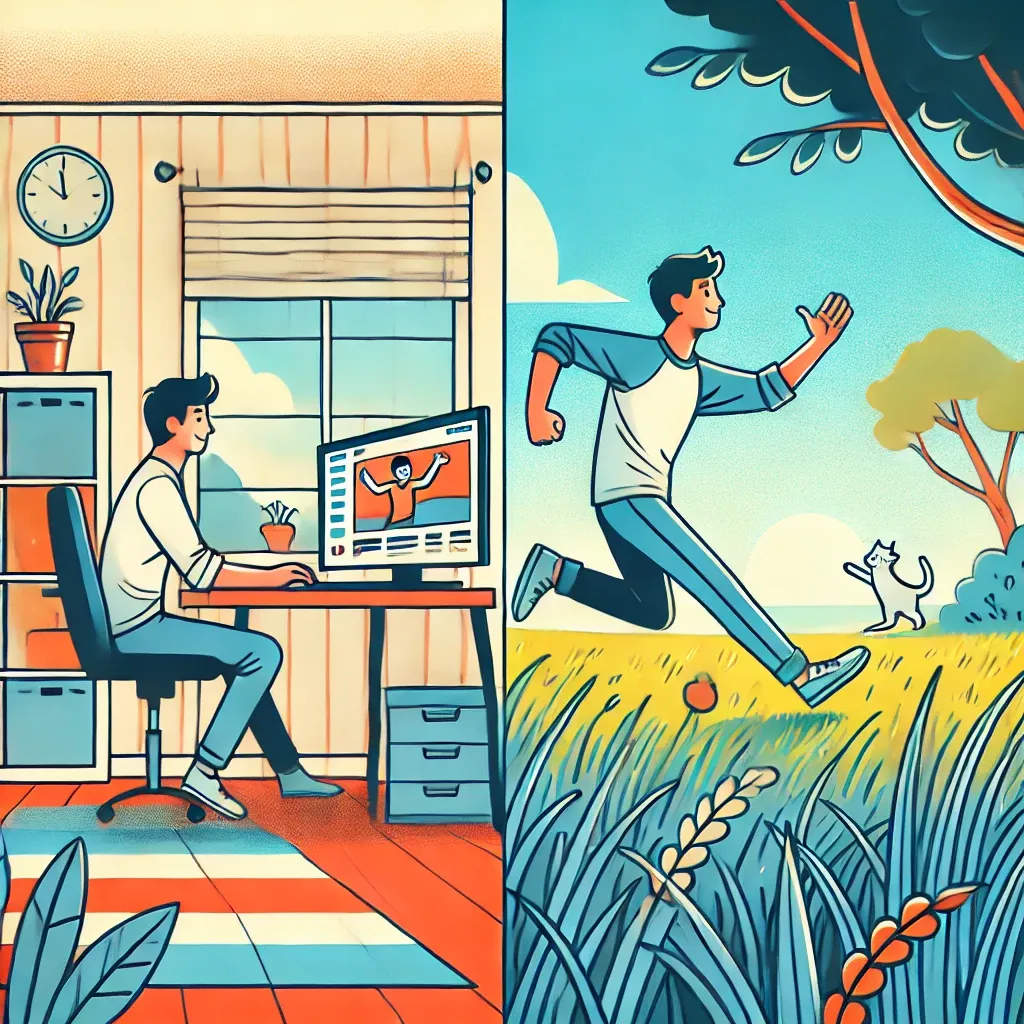Knowledge is Potential

This post is about why knowledge on its own can be overrated. A common phrase is that knowledge is power, but I disagree, knowledge creates the opportunity for power or success. Knowledge is potential. Applied knowledge is what is truly valuable. Executing on the knowledge you have is what is powerful.
This reminds me of another common phrase: “Hard work beats talent if talent does not work hard”. It does not matter that someone talented has the potential to be better if they are not putting in the effort to become better. Execution is what matters the most!
Too much knowledge?
It is not that too much knowledge is inherently bad it is that spending too much time gathering knowledge hinders you from taking action. I often get stuck in the knowledge-gathering process without applying what I learn. With access to all of the world’s knowledge at our fingertips, it is easier than ever to find information and learn about topics ranging from how to squat deeper for weightlifting to how to start a startup (I highly recommend both videos if you are interested). However, this access also presents some challenges.
It is easier than ever to get stuck in the knowledge-gathering phase and not go out and apply the knowledge you have gained. Your mind tells you that you should watch another video on the same topic just to be safe, and you are gaining "easy" dopamine from just watching the video and then you never apply the thing you learned about. After all, it is much easier to watch a video on guitar playing than it is to learn how to play guitar in reality. We trick our brains into thinking that we are being productive.
“It is easy to get bogged down trying to find the optimal plan for change: the fastest way to lose weight, the best program to build muscle, the perfect idea for a side hustle. We are so focused on figuring out the best approach that we never get around to taking action” - James Clear, Atomic Habits
The problem with getting stuck in this knowledge-gathering phase is that we don't get to the application part. This is problematic for many reasons, firstly, you will never see any positive impact of this knowledge if you are not applying it. Secondly, we learn an incredible amount from taking action. When we begin acting on what we know we begin synthesizing and making connections with the results further advancing our knowledge. A third reason is that the amount of time we spend on just consuming information is time we could use for more valuable actions.
"If you want to explore a new skill, don’t just consume information. Do the thing too. If you want to learn about music, don’t just listen to a lot of music. Play it too. Every activity has indescribable aspects you can only discover in the course of action." -David Perell, 28 Pieces of Life Advice
How can we change this?
The answer is deceptively simple, but not easy. We have to start actively learning by doing, instead of passively learning. Ali Gallop phrases it as we have to "Stop Pouring. Start Drinking." in his great video that can be found below.
What you must start doing, only you can know. But I have the feeling something popped up when reading this, I know for a fact that it did for me watching the video below. So pick one and take action, as Nike's slogan goes Just Do It.
Ali Gallop's video on the concept that knowledge is only the potential for something great
One thing I felt the need to start doing was writing, that is why I created this blog in the first place. However, I must continually remind myself to keep writing. Writing here is a way for me to not only consume content but also create content of my own. I have learned many valuable things from this blog. In addition to becoming better at writing and retaining more information about what I consume, I have learned a lot in other areas such as: setting up a website, creating a personal domain, SEO, Google Analytics, and other related skills that go into running a website. Many of these things were not what I set out to learn when I began to write but were bonuses on my writing journey here at https://www.oskareggert.com/.
Having established that we need to START DOING, we should try to cultivate a bias for action. It is a theme that consistently comes up when talking about successful people that they have a bias for action, but what does this mean exactly? In its essence, it is to be action-oriented and default to taking charge when facing challenges. To achieve this change we should all start with small reps to build out our "action-muscle", when you see a small problem try to solve it instantly instead of procrastinating on it. Over time you will build a habit out taking action and it will come naturally to you. If you want to learn more about cultivating a bias for action here are Shaan Puri's tips for achieving that.
"The purpose of a habit is to remove that action from self-negotiation. You no longer expend energy deciding whether to do it. You just do it. Good habits can range from telling the truth, to flossing." - Kevin Kelly
Conclusion
Knowledge is great, but it should not be the end goal. It is a means to an end, applied knowledge is what we should strive for. The point of this post is not to decry learning and gaining knowledge, but instead to highlight that there is so much more to be learned by doing. It is easy to fall into the trap of learning just to learn or to trick yourself into believing that you are learning by watching a YouTube video or reading a book. We live in a world full of distractions and we must all overcome them. I hope this article can help you on that journey!
Some additional content on the importance of execution and the danger of procrastination:
- Tim Urban's TED Talk on procrastination - One of my favorite TED Talks ever, Tim Urban explains what it is like to be a procrastinator.
- Derek Sivers' short post on why execution matters more than ideas
- Ali Gallop's video Stop Pouring. Start Drinking. which inspired me to write this post
